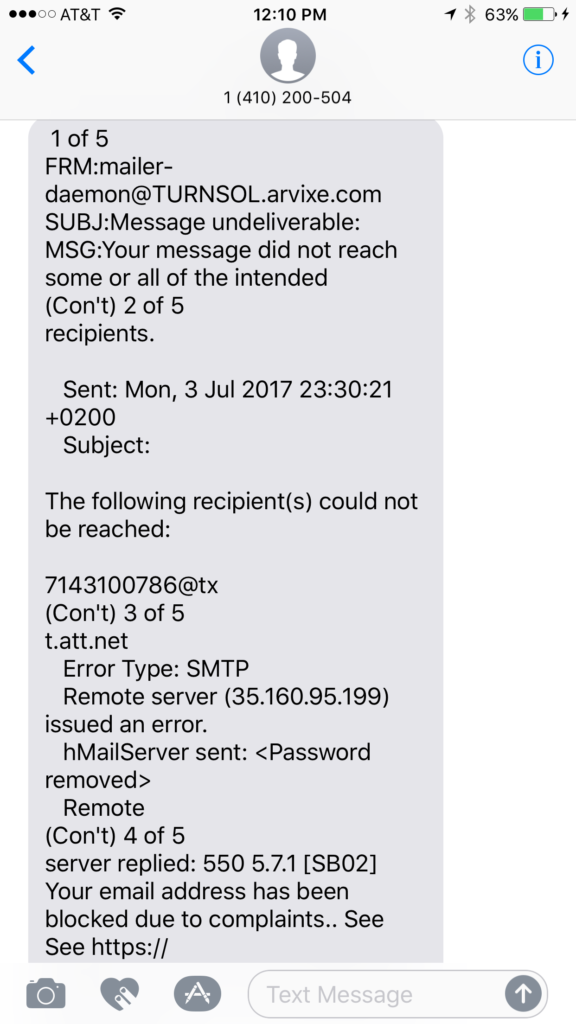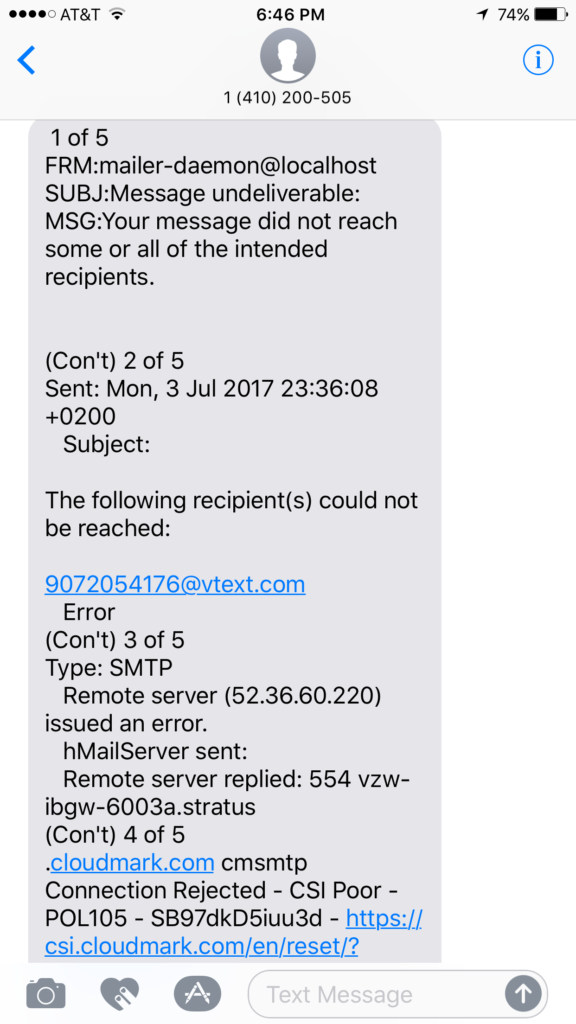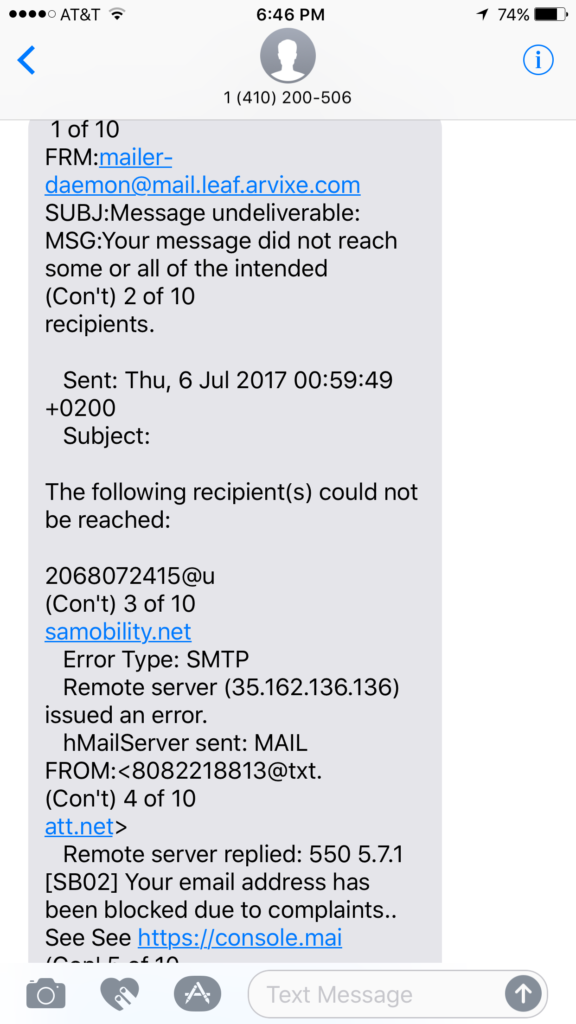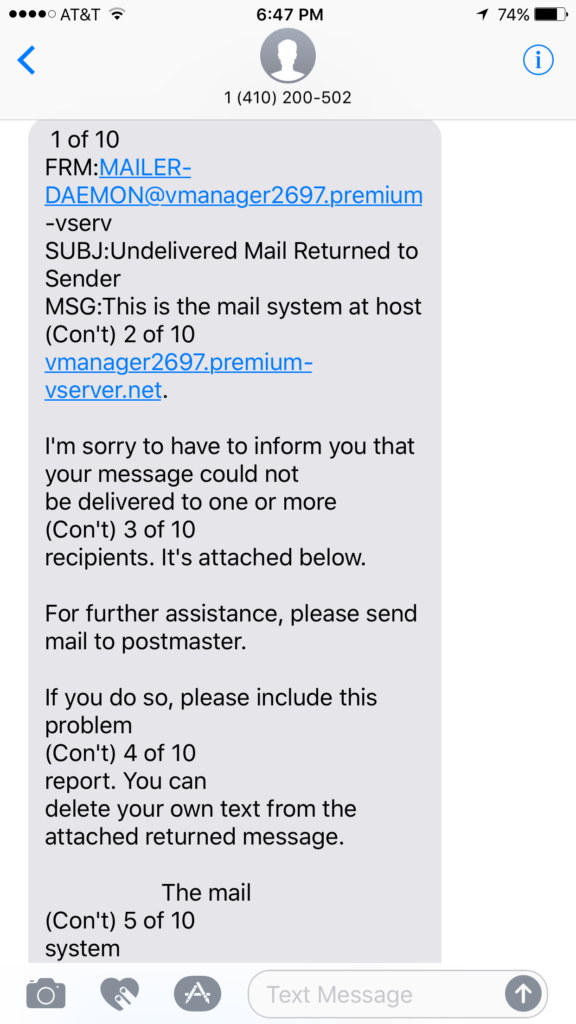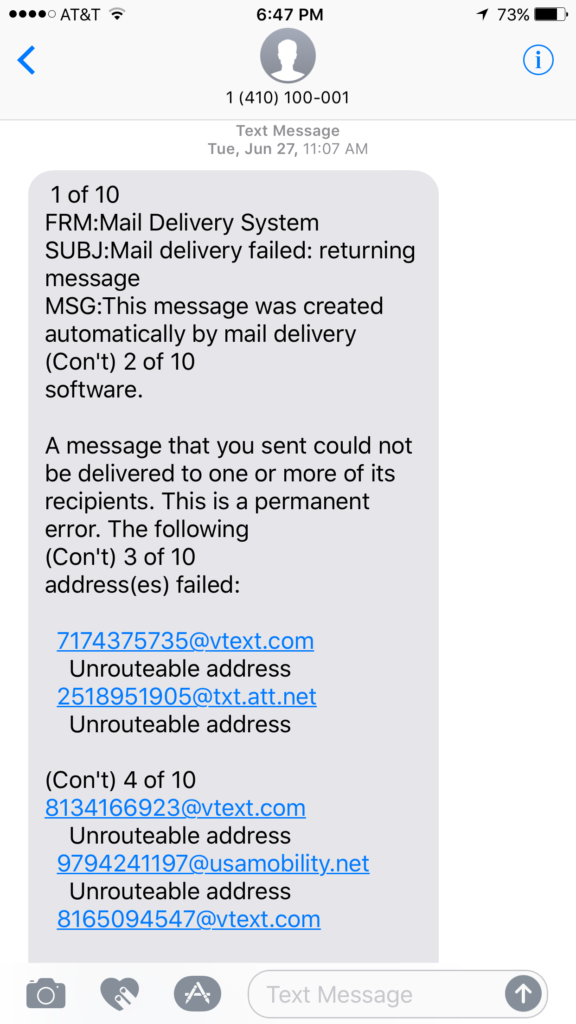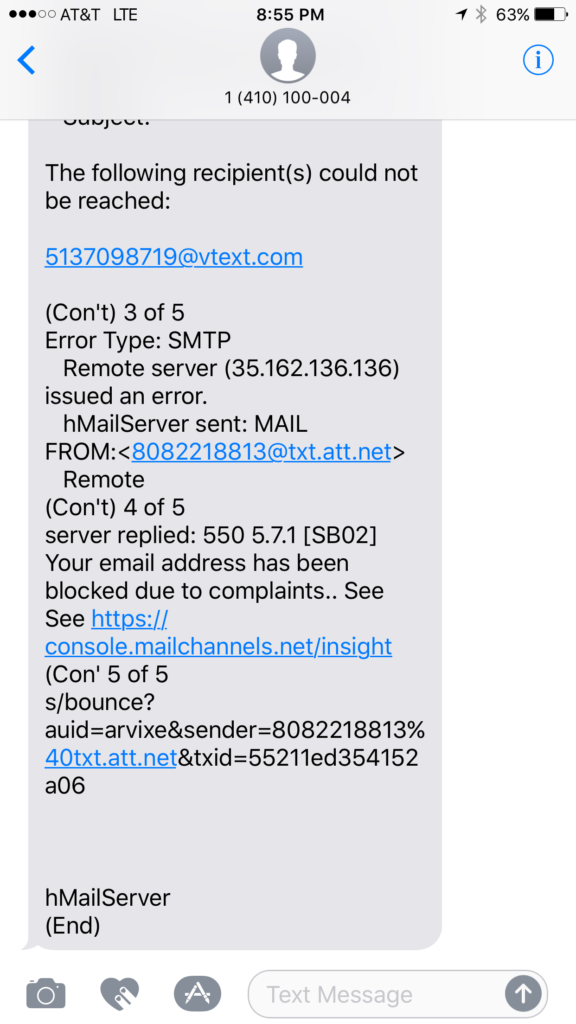AARP: Smishing is the New Phishing
Instead of sending emails, hackers are increasingly using text messages to reach potential victims, experts warn.
AARP and its partners are holding educational meetings in August in Hilo and Kona to help island residents fight smishing and other scams (see below).
SMiShing is named after Short Message Service—the technology that enables text messaging.
AARP Hawaii has recently received text messages from what appears to be a Smishing scam.
The texts look like error messages and contain links. One message asks you to click on a link.
Experts warn not to click on links in messages like this.
One clue that this is a scam is that the number is shortened—nine digits instead of the usual ten. That’s a sign that the message is an email sent to a phone. The numbers change each time a message is sent, making it difficult to block.
Smishing has been around for a while, but experts have notices an increase in recent weeks.
Scammers appear to be turning to text messages because people are ignoring emails and people tend read and respond to text messages quickly. Most text messages are opened within minutes of receiving them.
To fight back against smishing, here are some tips from AARP fraud expert Sid Kirchheimer:
- Don’t reply to text messages from senders you don’t recognize. Even sending a “remove,” “stop” or “opt-out” response tells SMS senders that your mobile number is active and ripe for more messages. Be especially wary of texts from a 5000 or other shortened number (versus a complete 10-digit phone number), indicating the message is actually an email sent to a phone.
- Never reply to text messages asking you to confirm or provide personal or financial information. Legitimate companies don’t text requests for account numbers, log-in details and other sensitive data. Government agencies don’t correspond by text (and are unlikely to even have your mobile phone number).
- Slow down. Most people instinctively deal with text messages ASAP, and smishing scams work best when creating a false sense of urgency. Rather than call back numbers provided in text messages (doing so is another tip-off of your working cell number), take a few minutes to verify the actual contact numbers of legitimate businesses that may need to contact you.
- Forward suspicious text messages to short code 7726 (which spells “SPAM” on your keypad), which allows cell phone carriers to identify and block smishing messages.
- Be stingy with your cell phone number. Don’t post it online or on social media, or provide it for contests, surveys, touted “deals” or “free trials.”<http://www.aarp.org/money/scams-fraud/info-03-2011/scam-alert-the-high-cost-of-free-trials.html>
To learn more about fighting smishing and other scams, AARP and partner organizations are putting on Scam Jam events in Kona and Hilo (and on other islands) in August.
Susan Arthur of the FINRA (Financial Industry Regulatory Authority) Investor Education Foundation is the featured speaker. Other partners include the Better Business Bureau of Hawai‘i and the Hawai‘i Department of Commerce and Consumer Affairs Office of the Securities Commissioner.
Hilo
Saturday, Aug. 12
9–11:30 a.m.
Church of the Holy Cross
440 W. Lanikaula St.
Kona
Saturday, Aug. 12
5–7:30 p.m.
West Hawai‘i Civic Center – Council Chambers
74-5044 Ane Keohokalole Highway






